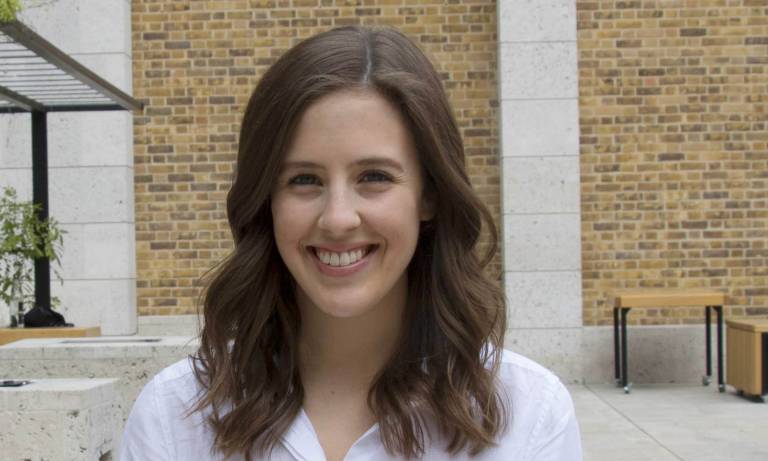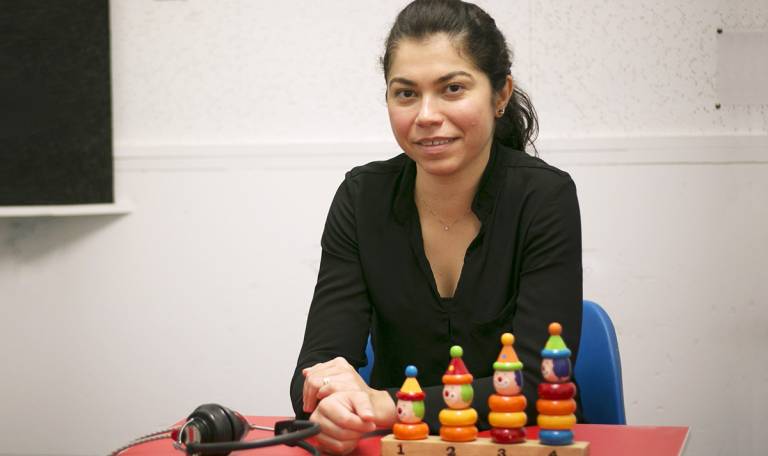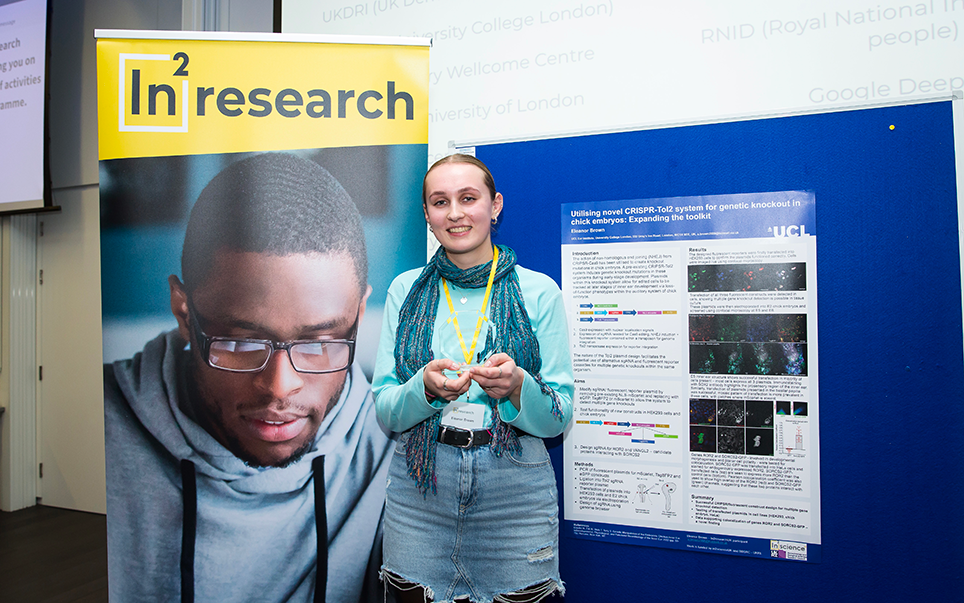Student testimonials
Graduate testimonials
- Warren Bakay (graduated 2017) Thesis title: Effects of Noise Exposure on Auditory Function
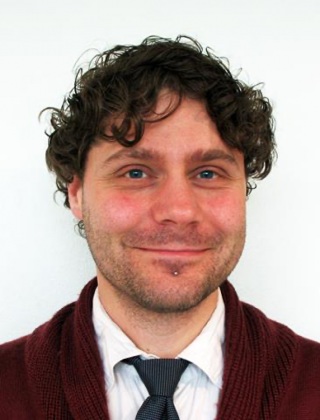
I received my PhD in Auditory Neuroscience from the UCL Ear Institute, supervised by Dr. Roland Schaette and Prof. David McAlpine. My background was as an electrical engineer, and moving into neuroscience was an exciting, and terrifying, challenge. Fortunately for me, the EI is wonderful place to learn, with an active social fabric and many people from all fields willing to help you and advise you whenever you need it.
While I was there, I studied the effects of sound exposures that do not lead to a permanent threshold shift (so called Hidden Hearing Loss) on neural mechanisms in the auditory midbrain. I found that many neural mechanisms thought to be critical for hearing in noisy environments are severely impaired by these exposures AND this all occurs without any discernible effect on clinical measures of hearing such as the ABR and audiometry. Beyond my own research, as an extracellular electrophysiologist, I was able to collaborate frequently with other labs at the Ear Institute, from electron microscopy to molecular biology to non-invasive cortical imaging. This has lead to several papers in adjoining fields, and gave me a real boost as a researcher.
I am now in my second postdoc, working at Institut Pasteur, in the lab of Prof. Christine Petit. I literally live on a boat in Paris, eating cheese and drinking wine regularly, and it all traces back to the amazing environment at the EI.
Example Publication: Bakay, W.M.H. et al. Hidden hearing loss selectively impairs neural adaptation to loud sound environments. Nat Commun 9, 4298 (2018). https://doi.org/10.1038/s41467-018-06777-y
- Shaza Saleh (graduated 2014) Thesis title: The Efficacy of Fitting Cochlear Implants Based on Pitch Perception
- I am currently work as a Senior Audiologist at King Faisal Specialist Hospital and Research Center, Riyadh, Saudi Arabia. I am also an Honorary Research Associate here at the UCL Ear Institute and a board member of the Advanced Arab Academy of Audio-Vestibulogy as of May 2014.
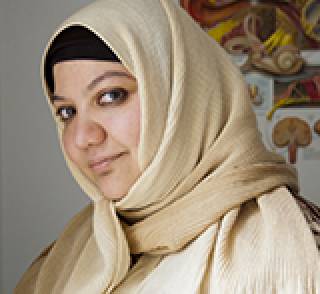
Due to the rich and diverse research environment at the UCL Ear Institute, contacts were established within the institute itself with top and established researchers in different fields pertaining to deafness and hearing in addition to new and upcoming researchers in the field.
Conducting research at UCL also provided an opportunity to meet other professionals and researchers in workshops and conferences both within the institute and at international meetings. It also provided the opportunity to discuss new research ideas and findings with top researchers and start collaborative work.
It has assisted me in opening new opportunities in both the academic and research fields.
I really enjoyed my experience at the UCL Ear Institute, the environment at the UCL Ear Institute promotes professional growth and provides opportunities for development through open communication with experienced and top notch researchers and academics in a friendly collegial manner.
- David Greenberg (graduated 2014) Thesis title: Sensitivity to Interaural Timing Differences within the Envelopes of Acoustic Waveforms
- I hold a PhD in Auditory Neuroscience from the UCL Ear Institute, where I was supervised by Professor David McAlpine. I had a background as a clinical Audiologist so the Ear Institute was an ideal location for me to pursue a research career in hearing science that included human psychophysical work, medical device and pharmaceutical clinical trials.
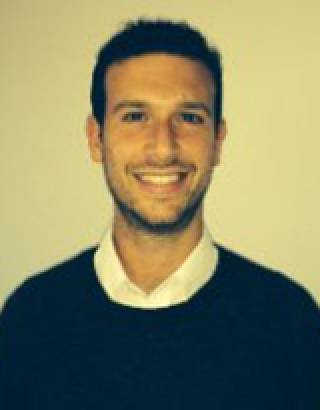
While studying for my PhD, I co-founded and taught the Introduction to Cochlear Implantation course at the UCL Medical School and have contributed to teaching within the UCL Ear Institute throughout my four years studying there.
I have written journal articles in the fields of cochlear implants, tinnitus, neurophysiology and psychophysics and currently work as a Research Associate at the UCL Ear Institute as part of the Advancing Binaural Cochlear Implant Technology (ABCIT) programme. The cross-disciplinary nature of the academic staff at the UCL Ear Institute has allowed me to experience a broad spectrum of approaches to hearing research and has provided the foundation for contributions to the wider UCL community that includes the UCL Grand Challenges for Health and Wellbeing and Entrepreneurialism at UCL.
Publications: Dietz M, Marquardt T, Greenberg D, McAlpine D. The influence of the envelope waveform on binaural tuning of neurons in the inferior colliculus and its relation to binaural perception. Adv Exp Med Biol. 2013;787:223-30.
- Greg Ball (graduated 2013) Thesis Title: Supporting cells and ERK signalling: determining their roles in hair cell death
- I was awarded my PhD in Auditory Cell Biology in 2013. I left to train to be a Patent Attorney, and am a member of the Life Sciences practice group at a leading firm in London.
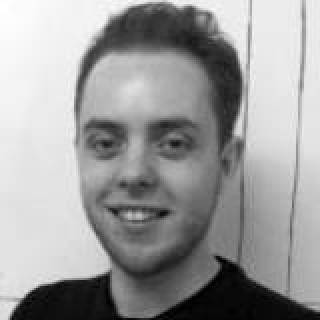
During my PhD, I, like many Ear Institute postgraduate students, was awarded a Bogue Research Fellowship, allowing me to broaden my research experience at the National Institutes of Health in the US. I was also able to improve my science writing skills on the internship scheme offered to UCL students at the Progress Educational Trust’s BioNews newsletter.
“My experience as a post-graduate student at the Ear Institute provided me with the skills that I now use in the patent industry. Regular opportunities to present my work, both in the department and at international conferences, were important in building my confidence and ability to communicate my work. The breadth of science covered at the Ear Institute was also useful as it is exposed me to a wider range of science than many research institutes. In a way this is reflected in my work as a patent attorney, where I need to understand a wide range of technologies”
- Joey Ziff (graduated 2013) Thesis Title: A molecular and genetic analysis of otosclerosis
- During my PhD, I investigated the genetic factors involved in the development of the hereditary hearing condition otosclerosis. I recruited families with otosclerosis to participate in an ethics approved research study and established a tissue bank of bone, blood and saliva from participating individuals. I then performed two next generation sequencing techniques in parallel on the patient samples in order to investigate the genetic basis of this condition.
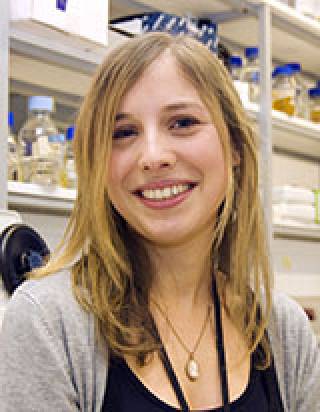
Current post: I am now working in the Civil Service as the Private Secretary to the Minister for Life Sciences at the Department for Business Innovation and Skills. I support the Minister during meetings and visits as well as parliamentary activity relating to the Office for Life Sciences. This invovles working closely with Civil Service officials and NHS colleagues in developing science policy which includes Genomics and the 100,000 Genomes Project. The skills and knowledge that I developed during my PhD have proven invaluable in this role.
Experience as a student at EI: I really enjoyed my time at the EI and not only had the opportunity to develop a range of skills which have been hugely beneficial for my career but also had the chance to make some great friends. Some of my most memorable experiences from my three years at the EI include attending conferences and presenting my work to colleagues. I would recommend it to any prospective students as a great place to do a PhD.
- Stefano Cosentino (graduated 2013) Thesis Title: Development and Evaluation of Objective Measures to Predict the Speech Intelligibility of Unilateral and Bilateral Cochlear Implant Users in Noise and Reverberation
- I studied towards a PhD in bio-engineering at the Ear Institute from 2010 to 2013. In the summer of 2012, I was awarded a travel grant that was used towards a 4-month internship at the INRS-EMT (Montreal, Canada).
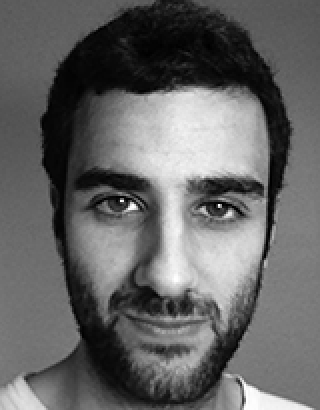
While at the Ear Institute, I was a lecturer for a course on “Cochlear Implantation” (winter term 2011) and one on “Basics of hearing and Cochlear Implantation” (winter term 2012). I took part at more than 10 national and international conferences to present work done at the Ear Institute.
I am currently working as postdoc scientist investigator at the Cognition and Brain sciences Unit (CBU) in Cambridge (UK).
Sample publications whilst a PhD candidate:
- (2014) S. Cosentino et al., "A model that predicts the binaural advantage to speech intelligibility from the mixed target and interferer signals", Journal of the Acoustical Society of America.
- (2013) S. Cosentino et al., "Cochlear Implant Oriented Filterbank Design and Optimisation: A Simulation Study", IEEE Trans. on Audio Speech and Language Processing.
- (2012) S. Cosentino et al., "Towards Objective Measures of Speech Intelligibility for Cochlear Implant Users in Reverberant Environments", ISSPA.
- John Kelly (graduated 2011) Thesis Title: An investigation of the properties and functions of connexins in the mammalian inner ear
- I completed my Deafness Research UK (DRUK) funded Ph.D. in 2011 under the supervision of Dr. Dan Jagger and Prof. Andy Forge. My time at the UCL Ear Institute led to the publication of 6 papers (including 1 from a first year rotation project with Dr. Sally Dawson).
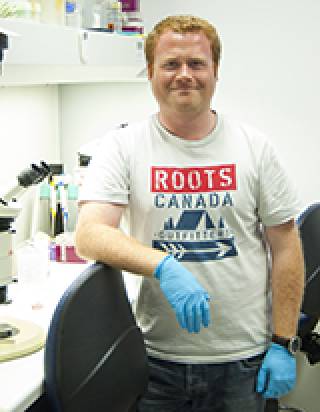
After a short 3-month bridging grant from DRUK, I moved to start a post-doctoral fellowship in the lab of Prof. Dale Laird at the University of Western Ontario (Canada) in 2012.
Since then I have authored another 5 publications and 1 review article, in addition to one currently in revision for Nature Communications and another in preparation for submission. My research interests have continued somewhat from my Ph.D. where I investigated the role of connexins in the inner ear with the ultimate aim of trying to decipher why mutant connexins cause a significant amount of hearing loss in the human population.
Currently, I am continuing work on other members of the connexin family that cause rare diseases such as oculodentodigital dysplasia and Clouston syndrome. My time at the Ear Institute prepared me well for (hopefully!) a career in research and really peaked my interest in the hearing system. This has helped fuel a return to the hearing field and I was recently awarded a grant from Action on Hearing Loss to investigate the role of a novel family of proteins, the pannexins, in the inner ear.
The EI is interactive and sociable and is a fantastic place to conduct hearing research. The broad range of studies (from molecules to brain recordings) means you get a full understanding of the system as a whole. I regularly keep in contact with my previous supervisors and other members of the Institute with the future aim of developing collaborations and working together on projects.
Publications:
- "Cx30 exhibits unique characteristics including a long half-life when assembled into gap junctions" Journal of Cell Science, 2015 Sep 10
- "Development of gap junctional intercellular communication within the lateral wall of the rat cochlea" Neuroscience 2011 Apr 28;180:360-9.
- "Contractility in type III cochlear fibrocytes is dependent on non-muscle myosin II and intercellular gap junctional coupling" J Assoc Res Otolaryngol. 2012 Aug;13(4):473-84.
 Close
Close




